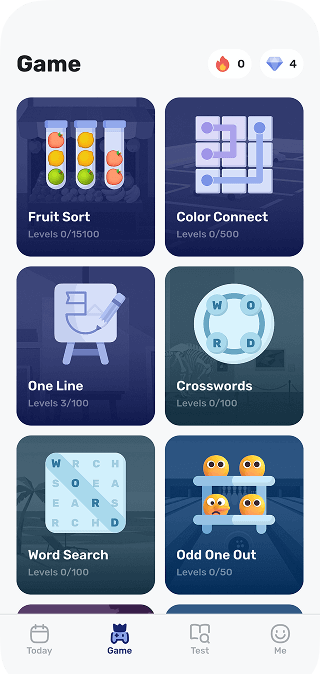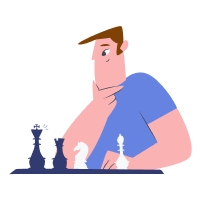Why Can't I Remember My Childhood
Denise Murphy Editor / Oct 10, 2025
Childhood memories have a profound and precious impact on our growth, but we cannot remember many things that happened in our early childhood. In fact, few people can clearly remember things before the age of 2-3 in adulthood. This phenomenon is called childhood amnesia.

Childhood memories have a profound and precious impact on our growth, but we can never remember many things that happened in our early childhood. For example, our first words, our first steps, and our favorite foods. In fact, in adulthood, few people can clearly remember things before the age of 2-3, and only a few can recall things that happened between the ages of 3-7.
This phenomenon is called childhood amnesia, which means that both children and adults have difficulty recalling their memories of infancy (before the age of 2-4). Do you still remember your childhood?
Is It Normal to Not Remember Things from Childhood
It is natural not to remember everything from childhood. We all have this experience: as we grow older, many memories of childhood gradually become blurred or even disappear completely. When we look back on interesting things in the past with our relatives and friends, we are often surprised to find that we have no memory of most of the things in our childhood.
Most people have very poor memory before the age of 3, and even at the age of 10, their memory is still limited. Most psychologists believe that this is caused by a disease called "childhood amnesia". So why can't we remember things before the age of three? What kind of memory phenomenon is this? Next, let's step into the mysterious world of the brain and uncover this interesting mystery.
Childhood Amnesia
Freud first proposed the concept. After clinical practice, he found that most of the test subjects could not recall events in their early lives. He set the age limit for this memory loss to be 6 to 8 years old, that is, when children are 6 to 8 years old, they begin to lose their memories of their early lives.
Recently, a new study by Emory University in the United States showed that children aged 6 to 7 can retain 72% of their early life memories, while children aged 8 to 9 can only retain 35% of their memories. Therefore, they believe that 7 years old is the period of memory loss for children.
Reasons You Might Not Remember Your Childhood
Not being able to recall childhood memories can be frightening, especially if you don’t know why. People often think of trauma as the root of memory loss, but there are many possible causes. Read on to learn why you may be missing memories from your childhood.

1. The Influence of Brain Development
We must first understand the "Hippocampus", a delicate structure located inside the temporal lobe of the brain. It is a key area for memory formation and storage. In infancy, it is not mature enough to handle the task of long-term memory. This means that our childhood memories are not fully processed and stored by the brain, so they are easily forgotten. As we age, our brains gradually mature and our ability to process and store memories gradually increases, so we can remember later experiences more clearly.
2. Visual System
In addition to the hippocampus, our visual system is also "holding back". Newborns have poor vision. As they grow older, their vision gradually improves, and colors and details slowly become clearer. The formation of memory depends largely on visual information. Therefore, in infancy and childhood when visual development is not perfect, our memories naturally appear fragmented.
3. The Expiration of Memory
Human memory has an expiration date. Generally speaking, short-term memory is retained for a shorter time, while long-term memory is retained for a longer time. Memories from childhood are often short-term memories, so they are easy to forget. As time goes by, these short-term memories gradually turn into long-term memories, so we can recall later experiences more clearly.
4. Lack of Repeated Stimulation
Memory needs constant repetition and stimulation to be retained. Childhood memories often lack repeated stimulation and are therefore easily forgotten. As we grow older, we are constantly exposed to new information, which constantly stimulates our memory, allowing us to recall later experiences more clearly.
5. Changes in Life Experiences
As we age, our life experiences are constantly changing. These changes may cause our memories of our childhood to become blurred or forgotten. For example, we may often play at home when we were young, but as we grow older, we may often play outside, which may cause our memories of playing at home when we were young to become blurred or forgotten.
6. Childhood Trauma
Traumatic factors may also affect our memories of childhood. For example, we may feel unhappy or painful about some experiences in childhood, so we selectively forget these memories. On the contrary, we may feel pleasant or happy about some experiences in childhood, so we selectively recall these memories.
7. Unable to Recall Correctly
It was previously believed that we do not retain childhood memories because the part of the brain responsible for retaining memories only develops well during adolescence. But a new study proves that this is not the case. "We now understand that the problem is not in forming memories, but in retrieving them," explains Turk Browne, professor of psychology at Yale University. "Memory works like a key and a lock. Even if the information is stored in the brain, we cannot access it without the right key. We are considering an almost fantastic possibility—early memories can persist into adulthood, but we just can't access them. It's like a book on a shelf that we can't reach."
8. Incomplete Language Development
If children lack language, they cannot describe memories from infancy because they do not have the vocabulary and knowledge to explain these memories. Adults and children can usually remember memories from around three or four years old, which is when language is developing rapidly. Before language develops, children usually only have pre-linguistic memories, and they may represent these memories with symbols. Therefore, once language becomes active, people can actively describe their memories with words. The context in which memories are encoded or retrieved is different for adults and infants because language does not exist in infancy.
How to Recover Childhood Memories
Not being able to recall childhood memories can be worrisome. If you can't recall your childhood because of trauma, it might be a good idea to seek psychotherapy. A therapist can help you better understand and deal with the issues this might reflect. There may be ways to restore memories. Not all memories can be restored. Here are some suggestions to help us better preserve and recall childhood memories
1. Share Memories
Sharing childhood photos, videos, and stories with family, friends, and classmates can stimulate our memories of the past. Through their stories and descriptions, we can re-experience those happy times.
2. Keep Souvenirs
Keeping souvenirs such as toys, clothes, and books from childhood can help us recall the past days. When we see these familiar items, the related memories will naturally come to mind.
3. Write a Diary
Develop the habit of writing a diary from an early age to record the little things in life. When we grow up, we can look through these diaries and recall the past. In addition, writing a memoir is also a good way to record our growth process and mental journey through words.
4. Review Important Moments
Reviewing important moments in our growth process, such as birthdays, graduation ceremonies, etc., these special moments are often more likely to remain in our memories. By revisiting these moments, we can reconnect with the joy and excitement of the moment.
5. Revisiting Old Places
Revisiting old places can bring up unexpected experiences. This might include your childhood home, school, a relative’s house, or your favorite park. Even driving through your old neighborhood and looking at the streets can help you remember things. Pay attention to your emotions and physical sensations as you revisit old places—these can provide clues.
6. Exercise Your Brain
Strengthening your brain is a great way to improve memory and other cognitive processes. This includes playing logic games, word games, or crossword puzzles, learning a language, or taking up a new hobby. Because of neuroplasticity, the brain can make new connections, so it never hurts to strengthen your brain’s overall ability when trying to recall things.
7. Create New Memories
While we can’t get back every memory from the past, we can create new and wonderful memories. Spending time with family and friends and participating in fun activities will create new experiences that will be treasured in our future.
Which Memories Are Easier to Keep for a Long Time
Memories that can arouse strong emotions are easier to keep. Strong emotions will enhance the strength and persistence of memories. Neurobiological and psychological researchers have studied the regulation of emotions on memory, which is related to a brain area called the amygdala. We can understand the amygdala as the brain area in charge of emotions, so memories involving the amygdala are generally more solid and lasting.
Final Thoughts
It is a common phenomenon that we have no childhood memories when we grow up, which is mainly attributed to factors such as brain development, life experiences, emotional factors and the expiration of memory itself. However, by sharing memories, keeping souvenirs, writing diaries, reviewing important moments and creating new memories, we can better preserve and recall the precious moments of the past. Let us cherish every moment and leave more beautiful memories for the future!
Disclaimer
Any assessments and their associated content on this website, regardless of date, are not intended to replace direct medical advice from your physician or other professional. If you experience severe or persistent symptoms, please consult a licensed mental health professional or healthcare provider.












